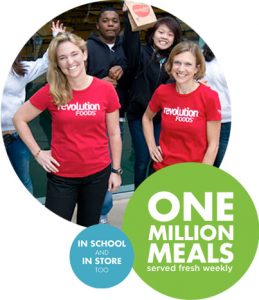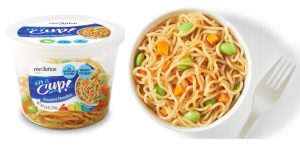Startups and small businesses with great problem-solving ideas.
A company doesn’t have to be especially big to have a big impact on the planet. Our On the Cusp list honors smaller companies, creative subsidiaries of bigger ones, and newer initiatives—spotting some worthy corporate efforts that may someday change the way you do business. See the companies that did make our Change the World list here.
West Elm (U.S.)
The Brooklyn-based home-decor company, a unit of Williams-Sonoma, has made “impact sourcing” its mantra. That means ensuring a living wage—plus a premium for each item they produce—to its global network of artisans and factory workers. West Elm has pledged to make 40% of its product assortment Fair Trade Certified by 2019.
CJ Group (South Korea)
In 2013 the conglomerate gambled that Korean ideals of empowering communities economically would go over well overseas. It focused on Vietnam’s Ninh Thuan village, where CJ taught farmers to grow Korean red chili and refurbished the irrigation system. The result: a great crop and a nearly fivefold increase in farmers’ income.
Revolution Foods (U.S.)
It’s a culinary miracle: Revolution Foods makes school lunches that are junk-free, freshly prepared, and locally made, while staying within public school districts’ ultra-tight budgets. The Oakland-based company is now a $125 million business operating in 1,600 schools, and its packaged meals sell in grocery stores in 44 states and via Amazon.
H&M (Sweden)
Earlier this year the retailer and fast-fashion pioneer articulated a startling vision: “100% circularity,” doing business exclusively with renewable energy and materials. Skeptics laughed, but H&M, which has already reduced its environmental footprint, has the size, scale, and cachet to change the clothing industry’s planet-punishing style.
Bit Source (U.S.)
Coal mining and coding have a lot in common, says Bit Source cofounder Charles “Rusty” Justice: “You can’t have bad habits or take shortcuts.” The Pikeville, Ky., company has trained 10 jobless mining veterans in website design and management. It recently landed its first Fortune 500 client—a hopeful sign in hard-pressed Appalachia.
TerraCycle (U.S.)
This Trenton company runs recycling programs for major corporations, turning seemingly unrecyclable goods—Brita filters, cigarette butts, Sharpie pens—into finished products or salable plastics. The $18.8 million business operates in 20 countries and boasts clients like L’Oréal, Procter & Gamble, and Colgate.
Coyote Logistics (U.S.)
It’s the Uber of logistics: The Chicago company’s software connects shippers with a network of 40,000 truckers across North America. The result is more efficient use of vehicles and lower carbon emissions. Now that Coyote has been acquired by UPS, of which it’s now a subsidiary, its impact is likely to be supersized.
By Matthew Heimer, Erika Fry and Jonathan Chew for Fortune.com




